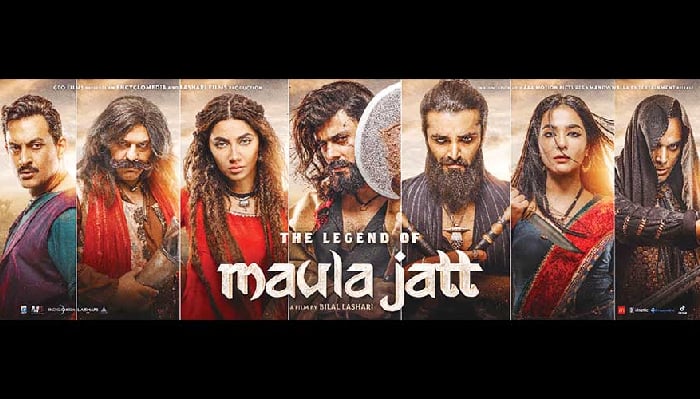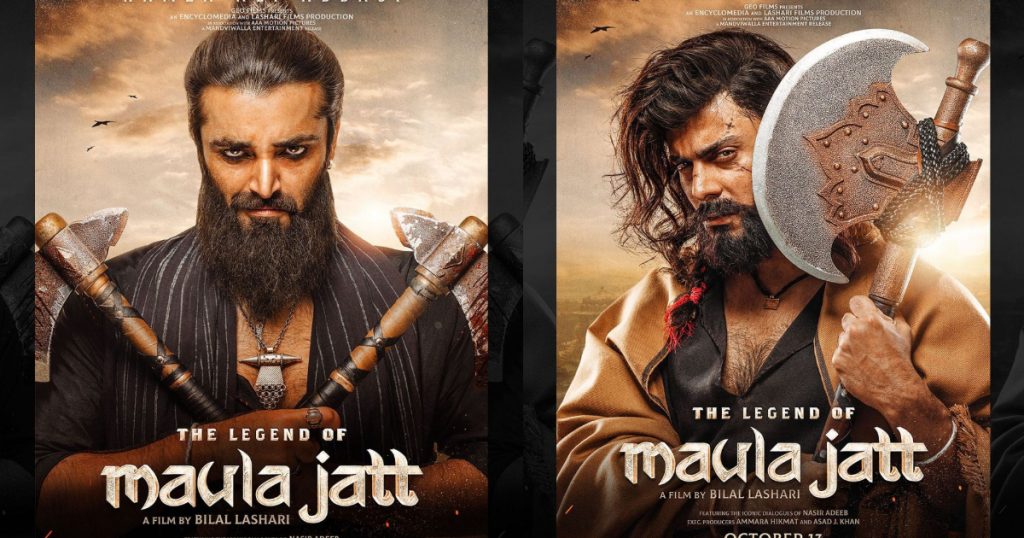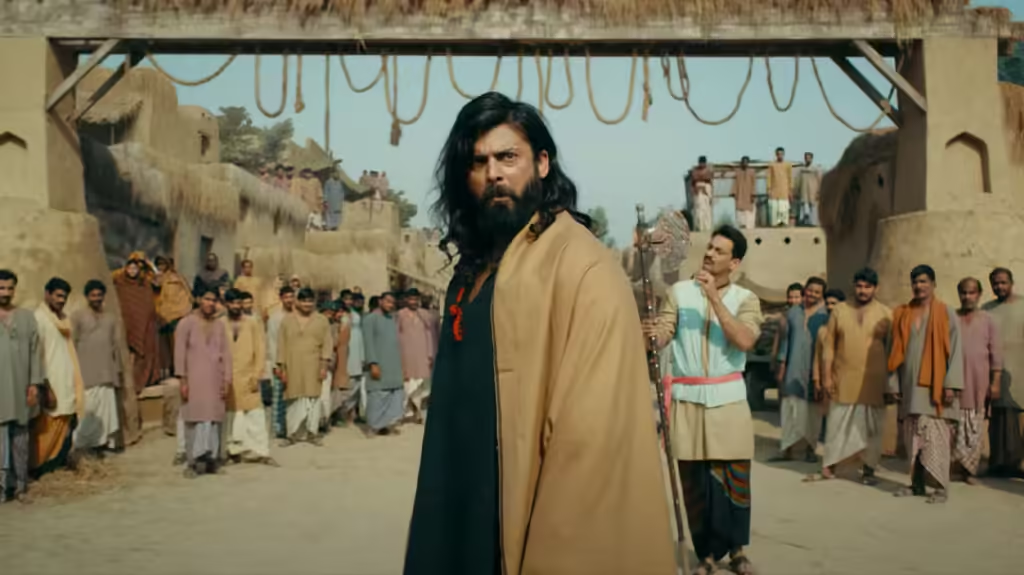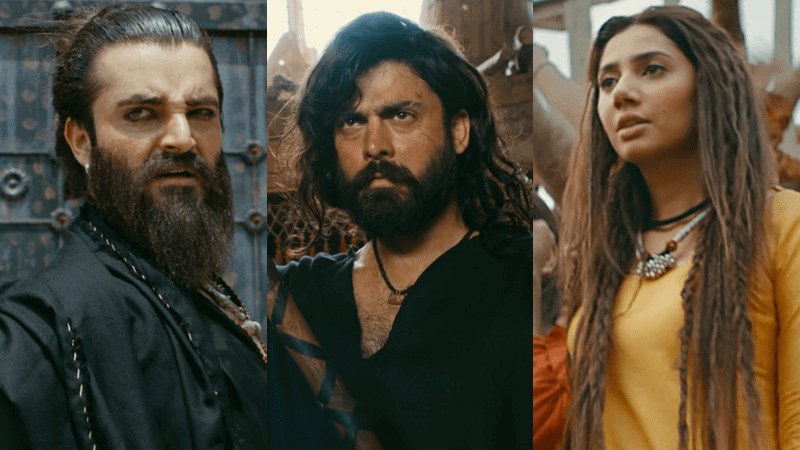Pakistani cinema has witnessed various films that define eras, but none compare to the cultural phenomenon that is Maula Jatt. Originally released in 1979, this iconic Punjabi-language film stands as one of the most significant achievements in the history of Pakistani cinema. Directed by Yunus Malik and written by Nasir Adeeb, Maula Jatt isn’t just a movie; it is a symbol of cultural pride, storytelling excellence, and larger-than-life characters. In this piece, we’ll explore the impact of Maula Jatt, its thematic elements, the performances, and why the film remains a timeless classic that continues to influence Pakistani cinema, both past and present.

The Plot: A Tale of Revenge and Honor
Maula Jatt is, at its core, a revenge drama set in the heart of rural Punjab. The film tells the story of Maula (Sultan Rahi), a man wronged by circumstances and thrust into a cycle of violence. His archenemy, Noori Natt (Mustafa Qureshi), is one of the most menacing villains to ever grace the Pakistani screen. The crux of the film revolves around Maula’s quest to avenge his family’s death at the hands of the Natt clan.
This rivalry between Maula Jatt and Noori Natt is more than just a personal vendetta; it represents a larger conflict between good and evil, honor and tyranny, and loyalty versus betrayal. These universal themes, combined with the rural setting, make the film relatable to audiences far beyond Punjab. It’s the primal and emotional aspects of this plot that have given Maula Jatt an evergreen status in South Asian popular culture.

Iconic Characters and Performances
One of the reasons Maula Jatt became a legendary piece of cinema is the unforgettable performances by the lead actors, Sultan Rahi and Mustafa Qureshi.
Sultan Rahi as Maula Jatt
Sultan Rahi’s portrayal of Maula Jatt was career-defining. His rugged appearance, fiery dialogues, and intense screen presence made him a household name. He perfectly embodied the quintessential hero: a man with a tough exterior but deep emotional conflicts. His character, Maula, is driven by the traditional sense of honor and justice that resonates deeply with the Punjabi community and beyond.
Rahi’s booming voice and powerful delivery of famous dialogues like “Nawa Aya Hai, Soniya?” (Have you just arrived, pretty boy?) became a part of the cultural lexicon in Pakistan, turning into a phrase used to signify dominance and confidence. His performance wasn’t just acting; it was a larger-than-life portrayal of a character that echoed the common man’s struggle and desire for justice.

Mustafa Qureshi as Noori Natt
On the other hand, Mustafa Qureshi’s role as the villainous Noori Natt was equally monumental. Noori Natt is a cruel, arrogant, and power-hungry character, but Qureshi’s portrayal adds layers of charisma to the role. His evil charm and menacing dialogue delivery made him one of the most memorable villains in South Asian cinema. “Maulay nu Maula na maray tay Maula nai marda” (No one can kill Maula except Maula himself) is one of his iconic lines that remains ingrained in pop culture, demonstrating the character’s complexity and indomitable nature.
The intense rivalry between these two characters drove the narrative of the film, creating a gripping and high-stakes confrontation that kept audiences on the edge of their seats.
Themes: Revenge, Honor, and Tradition
At the heart of Maula Jatt is the theme of revenge, but it’s layered with cultural motifs of honor and tradition. The film portrays a feudalistic society where blood feuds, loyalty, and family honor dictate life. Maula Jatt’s quest for revenge is not driven by personal gain but by a deep sense of familial duty and the need to restore his family’s lost honor.
In many ways, Maula Jatt can be seen as a reflection of the societal structures of rural Punjab, where families were often entangled in generational conflicts. The movie gives audiences a glimpse into this world while romanticizing the idea of the brave hero standing against tyranny. It’s these thematic elements that made the movie resonate with the masses in Pakistan and neighboring regions with similar cultural contexts.
Moreover, the film highlights the tension between tradition and change, between old values and new ways of thinking. While Maula Jatt fiercely protects his sense of honor and family legacy, the world around him is constantly evolving, symbolizing the struggle of individuals in changing times.
Cultural Impact: From Local Legend to International Fame
What set Maula Jatt apart was not just its box office success but its influence on Pakistani pop culture. The film became a blueprint for the ‘gandasa’ genre—a type of cinema characterized by rural settings, feudal conflicts, and larger-than-life characters, often brandishing traditional weapons like the ‘gandasa’ (a long-handled axe). This genre dominated the Pakistani film industry for decades after the release of Maula Jatt, with filmmakers trying to replicate its success, albeit with varying degrees of success.
The movie also holds the distinction of being one of the first Pakistani films to gain international recognition. It was dubbed and shown in various countries, especially in regions with a large Punjabi-speaking diaspora, such as the UK and Canada. For many Pakistanis living abroad, Maula Jatt became a symbol of cultural identity, evoking feelings of nostalgia and pride.
Maula Jatt gained such immense popularity that it continues to be referenced in contemporary media, including television shows, music, and internet memes. Its dialogues are often quoted, and the characters of Maula and Noori have achieved legendary status, far beyond the confines of cinema.

The Legacy and Modern Revival: The Legend of Maula Jatt
The legacy of Maula Jatt is so profound that decades later, filmmakers decided to recreate the magic with The Legend of Maula Jatt, a reboot of the original. Directed by Bilal Lashari and starring Fawad Khan as Maula Jatt and Hamza Ali Abbasi as Noori Natt, the film has generated immense buzz since its announcement. The modern adaptation promises to pay homage to the original while bringing in contemporary filmmaking techniques and a more polished cinematic experience.
The anticipation surrounding The Legend of Maula Jatt demonstrates the undying love audiences have for the original film. It speaks volumes about the cultural significance of Maula Jatt and its enduring appeal across generations.
Conclusion: A Timeless Classic
Maula Jatt is not just a film; it is a cultural phenomenon that has shaped the trajectory of Pakistani cinema. Its themes of honor, revenge, and loyalty are universal, yet deeply rooted in the rural Punjab context, making it both a local and global cinematic experience. With unforgettable characters, iconic dialogues, and a storyline that resonates with the masses, Maula Jatt continues to inspire filmmakers, actors, and audiences alike.
The upcoming release of The Legend of Maula Jatt is a testament to the original’s lasting legacy. Whether you are revisiting the 1979 classic or looking forward to its modern-day revival, one thing is clear: Maula Jatt will forever hold a special place in the heart of Pakistani cinema, solidifying its place as an immortal piece of film history.